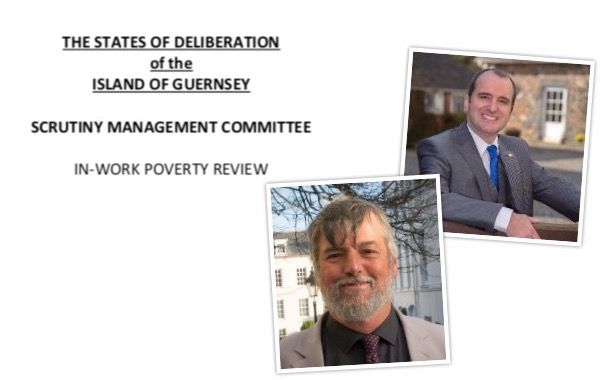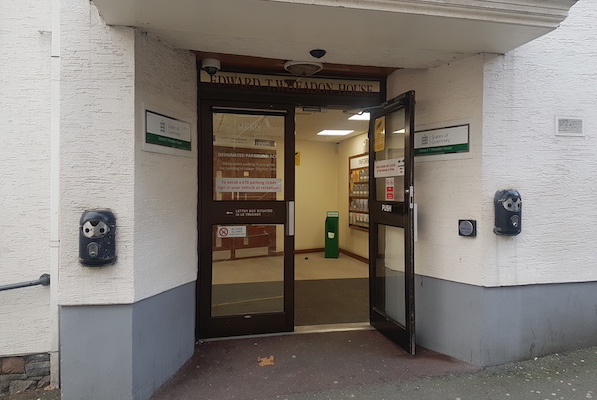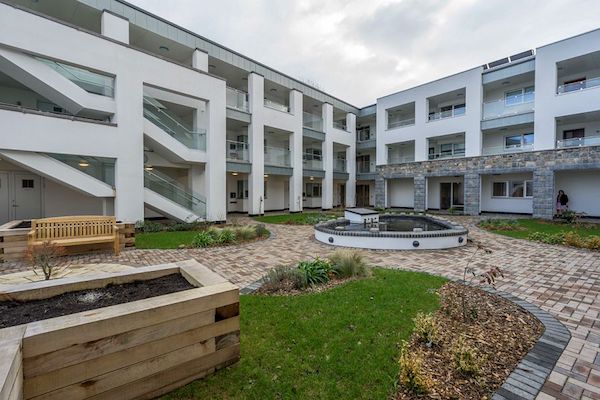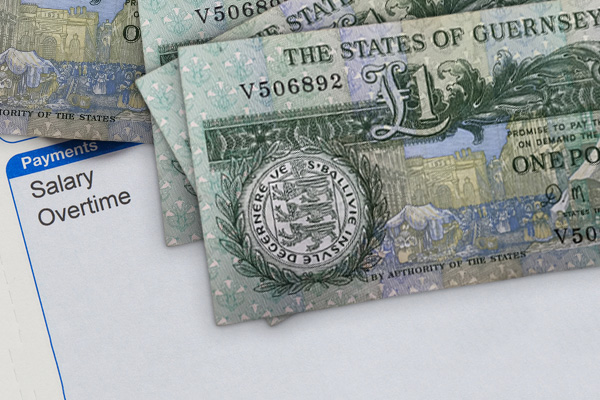

A report into the issue of in-work poverty has been completed by the States, concluding Guernsey "must do more to ensure those on modest incomes" have access to better lifestyles.
Costs of accessing primary emergency health care, the tax and benefit system and affordable accommodation were three of the key areas identified for improvement.
But the issue itself of people working and still finding themselves in poverty needs to "be given higher priority by government" according to the panel who put the report together.

Pictured: Deputy Peter Roffey was the Chairman of the Panel conducting the review and compiling the report. He was joined by Deputy Laurie Queripel, Deputy Rhian Tooley, Mr Wayne Bulpitt CBE, Dr Sue Fleming and Mr Paul Ingrouille.
The report itself has been compiled into a Policy Letter by the States' Scrutiny Management committee, and was produced by a review panel chaired by Deputy Peter Roffey.
“Those working, often full time, struggling to pay for rent, doctors bills and childcare are now experiencing real poverty and they may start to question the ‘implied social contract’ that states, if you work hard you will be able to support yourself and your family to enjoy an acceptable standard of living," Deputy Roffey said.
"Too many local families now believe the State is or is close to breaking this informal contract – those who are struggling financially can clearly see the increasing inequality of their current position. This situation needs to be addressed urgently.”
In 2015 - the latest figures available - it was found a significant number of people lived experiencing in-work poverty. 60% of net median annual income was £19,073, and 21.3% of people lived in a household with less than that. This amount equates to £367 per week for two adults after housing costs and taxes.
The report found that in light of these figures, the government should "feel compelled to act". It gave some recommendations on what these actions should be.

Pictured: The key recommendations as outlined by Scrutiny.
Some of the key themes in the report are:
Improving access to Primary Care and Emergency Care for people experiencing In-work Poverty

Both the relatively high cost of medical care - such as dental appointments - and also the cost of emergency treatments were highlighted. Under the current system, a visit to the Emergency Department can leave users facing a service charge of around £500 in a single visit.
"Therefore, we recommend, as an example that, provision should be made to allow children under five years old to access the currently under-utilised capacity that exists within this service for a nominal fee. We believe a maximum tariff should be clearly defined and applied to ensure an Islander should never be presented with a bill in excess of £100. This additional certainty would potentially remove the current real financial worry facing Islanders who find they require these services."
Income tax and social security

The Scrutiny Management Committee believed it was essential P&R considers measures to provide additional financial support to islanders experiencing in-work poverty.
It said: "At the moment the current tax and social security contributions system does not offer additional relief to the lower paid. It is possible that a lower tax rate and/or social security contributions could be put in place to provide additional income for workers earning below the median income. This would allow these people to retain a higher level of their income when tax and social security contributions have been deducted."
Housing policy to support people in poverty

Housing costs are a central issue when considering in-work poverty in Guernsey and a key concern for local people in receipt of lower wages.
"Put simply, a modest household income with housing costs representing 30% of that income may allow that household to access the basic requirements of life. The same household income, coupled with housing costs of 40-50%, may not. Since housing costs are such a significant contributor to the living costs of those experiencing in-work poverty, it is clear that progress needs to be made in the provision of ‘affordable housing’ in Guernsey."
The report also spoke about the possibility of changing criteria for social housing once again, to potentially make it easier for people to access. It found there were families struggling with high housing costs that did not fit in with said criteria at the moment.
Minimum wage

Going into this report, the panel said it was expecting evidence to point toward a need for an increase in minimum wage. However it found at most, minimum wage could only be one component of addressing on-work poverty.
"The Scrutiny Management Committee has concluded the majority of those likely to benefit from a significant uplift in the minimum wage are single non-Islanders on short-term contracts.
"An increase in the minimum wage, from which this group would be main beneficiaries, would have limited impact on in-work poverty in Guernsey."
Why was this review done?
Following Policy & Resource's expression last year that Guernsey should be "among the happiest and healthiest place in the world", the Scrutiny Management Committee decided to look into these high aims.
As Deputy Roffey said, the committee felt there was an informal contract between Guernsey and its residents, whereby "by working hard you contribute to society and should be able to enjoy a reasonable standard of living". But on the island, it found there were significant numbers of people experiencing in-work poverty.
But one thing which has hindered the review from the outset was a lack of sound data, it found: "One of the key themes of our investigation was a frustrating lack of sound data upon which to base decisions. As an example it was surprising to find that it is not currently possible to know how many workers in Guernsey earn the minimum wage or the number of hours worked".
Employment & Social Security are now going to work towards that aim.
Deputy Chris Green, President of the Security Management Committee, said it was important for the States to be on the side of struggling families.
"I am glad that Scrutiny have been able to deliver the Policy Letter I originally envisaged when I took on this role," he said.
"Often in the past, the discussion of poverty in Guernsey has focussed on people in receipt of benefits or those on minimum wage, but the reality is that many working people who earn well above minimum wage simply cannot make ends meet because of the cost of living locally. The States needs to be on the side of hard working families who struggle with in-work poverty."
The report itself concluded: "This perception that Guernsey is a patrician community, with the great and the good deciding how the ‘poor and feckless’ are treated must be addressed in future government policy."
Pictured top: Deputies Peter Roffey and Chris Green.
Comments
Comments on this story express the views of the commentator only, not Bailiwick Publishing. We are unable to guarantee the accuracy of any of those comments.